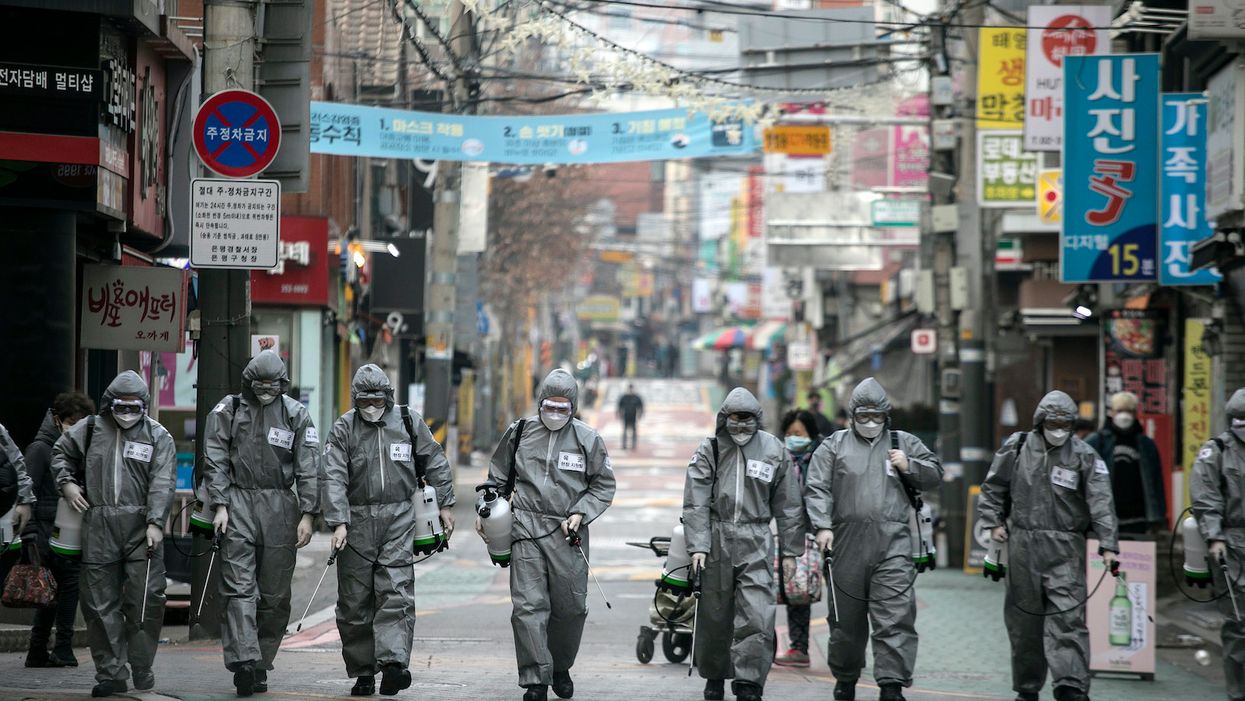
Woohae Cho/Getty Images

'All countries can still change the course of this pandemic'
The global outbreak of the new coronavirus — formally known as COVID-19 — is now classified as a "pandemic" by the World Health Organization, according to remarks from the head of the international organization on Wednesday.
"WHO has been assessing this outbreak around the clock, and we are deeply concerned both by the alarming levels of spread and severity and by the alarming levels of inaction," WHO Director-General Dr. Tedros Adhanom Ghebreyesus said at a press briefing in Geneva, Switzerland. "We have therefore made the assessment that COVID-19 can be characterized as a pandemic."
In leading up to the pronouncement, Tedros pointed out that, over the past two weeks, the total number of cases of the disease outside China — where it originated — has "increased thirteen-fold" and that the number was likely to continue rising.
"There are now more than 118,000 cases in 114 countries, and 4,291 people have lost their lives; thousands more are fighting for their lives in hospitals," Tedros announced. "In the days and weeks ahead, we expect to see the number of cases, the number of deaths, and the number of affected countries climb even higher."
The WHO faced criticism for not using the term "pandemic" before Wednesday's announcement. A WHO post from 2010 defines a pandemic as the "worldwide spread of a new disease," and given the high number of countries currently affected by the spread of the coronavirus, the ongoing situation would certainly seem to fit that definition.
"I think it's pretty clear we're in a pandemic and I don't know why WHO is resisting that," Michael Osterholm, director of the University of Minnesota's Center for Infectious Disease Research and Policy, told the L.A. Times in a story earlier this week.
At the press briefing, Tedros warned that the term "pandemic" is not one "to use lightly or carelessly" and that "if misused, can cause unreasonable fear, or unjustified acceptance that the fight is over, leading to unnecessary suffering and death." He also explained that this new assessment doesn't change what the organization is doing to combat the virus or the organization's view of the threat that it poses.
While this is the "first pandemic caused by a coronavirus," Tedros said Wednesday, he also stressed that "we have never before seen a pandemic that can be controlled."
The director-general went on to explain that merely looking at the total number of cases and affected countries "does not tell the full story" about the newly proclaimed pandemic.
"Of the 118,000 cases reported globally in 114 countries, more than 90 percent of cases are in just four countries," Tedros said, referring to China, Italy, Iran, and South Korea. He also said that 81 countries haven't reported cases, while 57 had reported 10 or fewer.
"We cannot say this loudly enough, or clearly enough, or often enough: All countries can still change the course of this pandemic," Tedros said. "If countries detect, test, treat, isolate, trace, and mobilize their people in the response, those with a handful of cases can prevent those cases becoming clusters, and those clusters becoming community transmission."